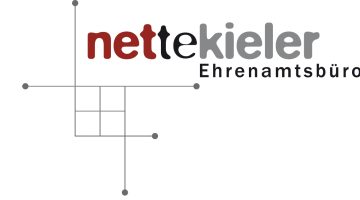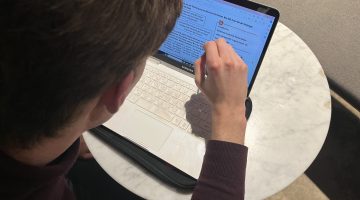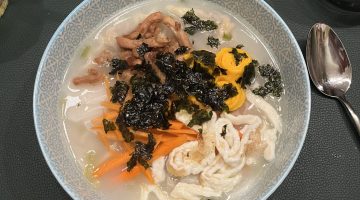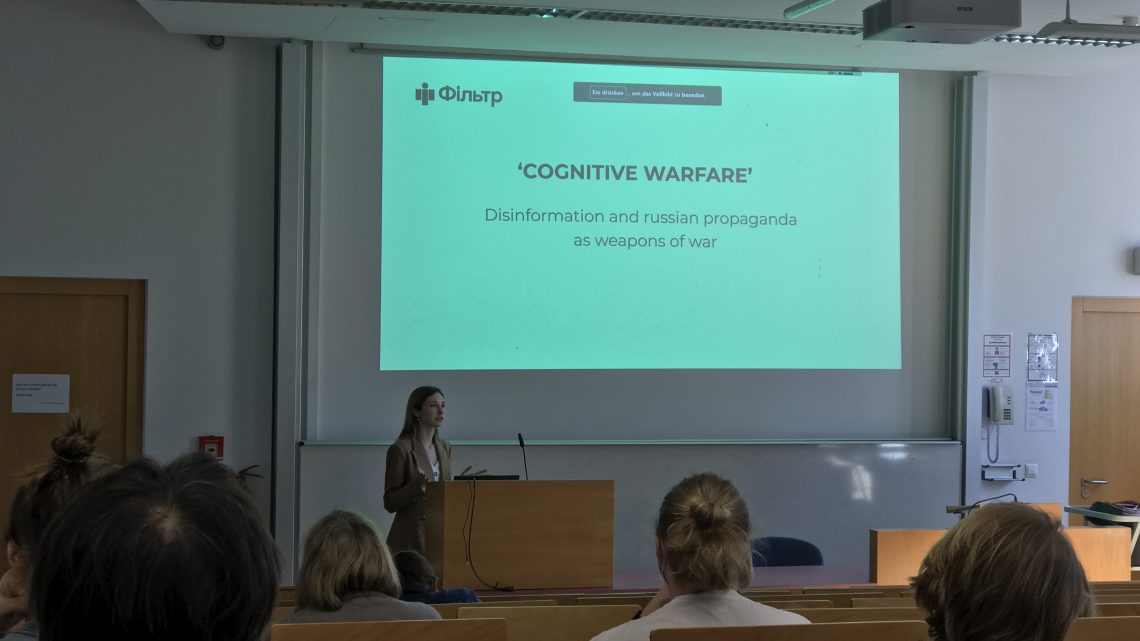Ukrainian activist and former journalist Valeria Kovtun gave a lecture at FH Kiel. She talked about key narratives spread by the Russian government before and during the war in Ukraine and how they affect society. Ms Kovtun also gave practical tips on how to spot fake news.
On April 19, the community of Kiel University of Applied Sciences had the opportunity to meet Ukrainian activist Valeria Kovtun. She is no stranger to FH Kiel as she was once a participant at the Kiel Journalism Summer School organised in 2015.
In Ukraine, she worked as a senior correspondent for the top morning show in Ukraine Breakfast with 1+1. Ms Kovtun also worked at BBC in London and was a journalist at the United Nations in New York.
She is the founder and head of a Ukrainian national media literacy project “Filter”. Ms Kovtun has been working specifically to combat Russian misinformation online since war broke out on February 24.
The Ukrainian activist came to Kiel to share the results of scrupulous fact-checking of Russia’s reporting of the war in her country.
The targets of propaganda
The main goal of Russian disinformation, she said, is to demoralise Ukrainians that became united in the face of an attack. As Russia failed to occupy Ukraine in just 1 or 2 days, an “unprecedented sense of unity” suddenly appeared. Even pro-Russian people had changed their position, she added.
“When you see your home invaded, when you see your house robbed by some foreign people, you definitely don’t want it to happen. So lots of people united,” said Valeria Kovtun.
The target of propaganda is not only Ukrainians, but also Russians themselves. According to Ms Kovtun, for a long time they had been fed false narratives about Ukrainians being one people with Belarusians and Russians without whom they cannot develop as a nation.
According to such a narrative, when Ukraine started to look towards the EU, the Russians’ “younger brother” was apparently diverting from the family. “Russia thought they should help this brother come back. I’m saying it with a smile, but in fact this has been enrooted in so many different stories starting with the media, ending with cartoons,” said Valeria Kovtun.
Russia portrays Ukrainian government as nazis and dehumanizes the country’s citizens, she added. As an excuse for the invasion, an idea was being spread that if Russia hadn’t attacked first, the West would’ve attacked Russia.
The need for critical thinking
Ms Kovtun reminded that when reading the news online on the war in Ukraine, it’s crucial to stay critical. According to her, people should ask themselves what the source is, whether the information is too emotional and has a lack of solid arguments, whether the quality of photos, videos and text itself is low.
It’s also important to check the date and be wary of emotional information. Especially on social media, she said, it’s easy to spread fake, manipulatory content. “You can easily edit a video, even a teenager can do it, and of course everyone is keen on watching some emotional messages,” said Ms Kovtun.
She also took the opportunity to criticize Germany and the West for their actions or inaction regarding the war in Ukraine. “I still think that governments should be more decisive, they should do more,” said the former journalist.
Also, to her mind, the German newspaper Die Welt’s hiring of Maria Ovsyanikova, a Russian journalist who stood against the war on state-run TV in her home country, is a questionable move. “Should we make a hero out of someone who had been working for the main Russian propaganda TV channel for over 9 years?” asked Ms Kovtun.
She finally emphasised the importance of constructive and calm discussion when trying to change the minds of those aggressively defending what Russian propaganda says.
“Aggression breeds aggression. Numerous studies suggest that in order to persuade someone, you need to practise deep listening. So you have to let the person express themselves and listen,” said Valeria Kovtun and added, however, that it will take years for Russians to start looking at their government critically.
![FHews – [ fju:s]](http://fhews.de/wp-content/uploads/2015/05/fhews_logo2_3B8ACC.jpg)









No Comment